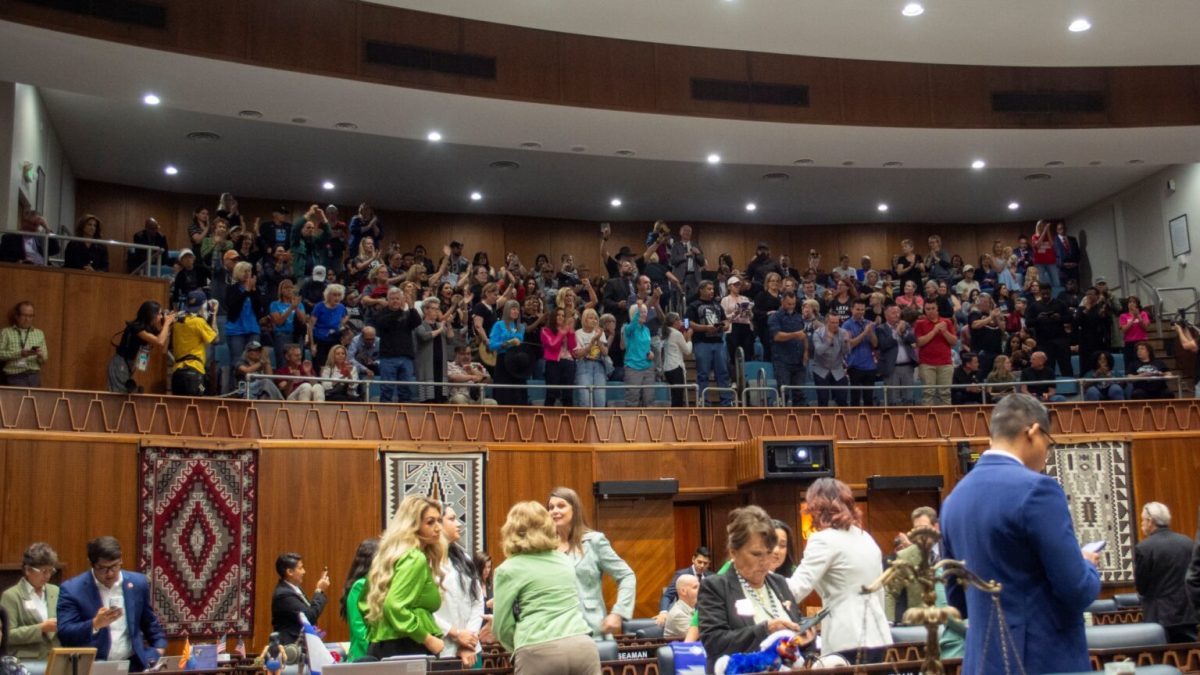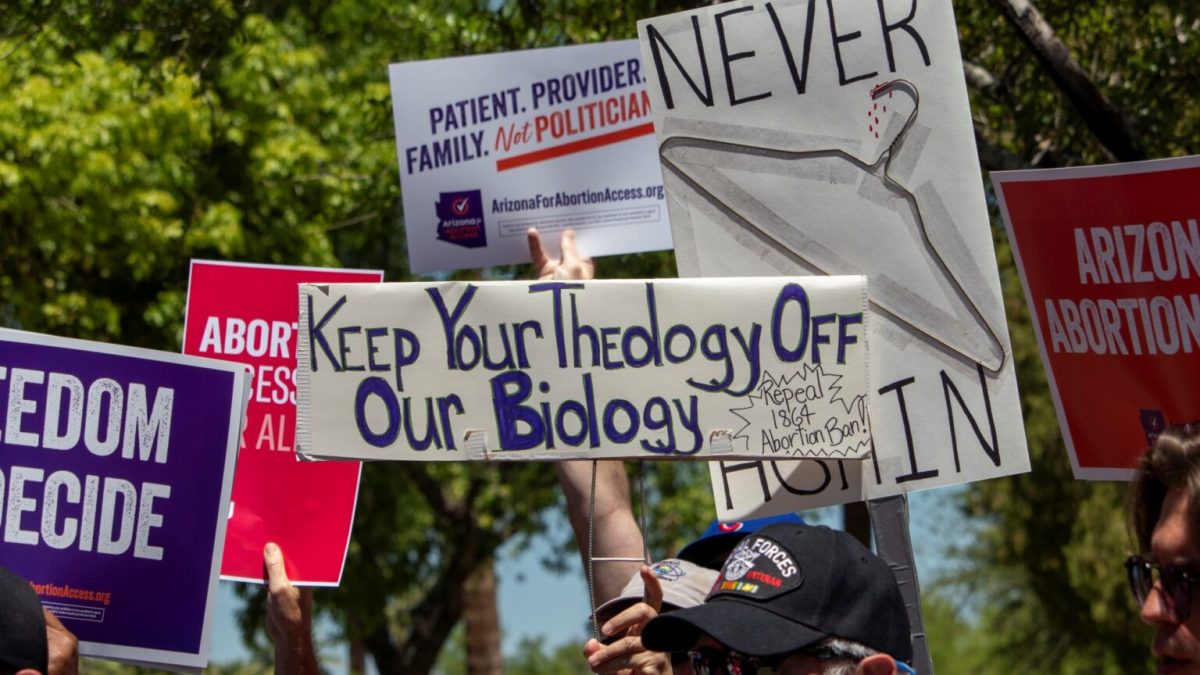In a tirade during a Senate Judiciary Committee meeting, a Republican state senator took shots at the Arizona Board of Regents and state universities as he introduced a package of bills that he claimed would ensure transparency and free speech protections.
During the hearing, Sen. Anthony Kern, a Glendale Republican who said he was “not a university guy,” called the state’s universities “anti-American indoctrination camps,” for offering courses and events that cater to people of color and members of the LGBTQ community, such as the Barrett Black Student Reception.
“This bill is to rein that in, ensure ABOR does their job, ensure the universities protect all students and share the students’ rights to free speech, ensure that professors are not shut down or kicked out if they dare (to) open their conservative views,” Kern said.
Senate Bill 1304, would require the Board of Regents, which governs Arizona’s three public universities, to adopt and enforce a “free expression policy” explicitly stating that students and faculty have the right to assemble and express their views without penalty. If an employee or student violated the policy, they could be punished by suspension, expulsion or termination of employment. It would also require the board to post the intricacies of this policy on its websites, to ensure that all of the students, employees and administrators tasked with enforcing it are aware of what it entails.
The bill also includes a measure requiring all universities governed by the Board of Regents to regularly submit a report proving that all classrooms have an authentic U.S. flag and Constitution on display.
Kern’s Senate bill 1305 would require that the name and syllabus of each course at all three of Arizona’s public universities be publicly available prior to the start of each academic term, along with the professor’s name and professional background. Additionally, university departments would be required to post the following information on their websites:
- The number of students that take more than one course offered by the department
- The number of students enrolled in one or more degree program offered by the department
- The number of students taking courses under each instructor
- Meeting minutes for all faculty meetings, except those regarding personnel matters
Kern said he believes that the Board of Regents has been passing its duties off to university leaders, and his Senate bill 1306 reiterates that by delegating tasks to the individual universities, the board does not absolve itself of its own responsibilities.
Kern’s legislation comes fewer than 6 months after an Arizona State University investigation debunked claims of censorship that emerged when the university’s Barrett Honors College students and faculty protested an event featuring conservative speakers such as Turning Point USA founder Charlie Kirk, author Robert Kiyosaki and radio show host Dennis Prager.
Despite campus protests and GOP cries of censorship, the event still happened, unlike an event featuring Michigan Democrat U.S. Rep. Rashida Tlaib — the cancellation of which Kern celebrated.
During the committee meeting last week Senate Minority Leader Mitzi Epstein criticized Kern’s legislation package as redundant, saying that the Board of Regents and the universities are already making most of the changes the legislation would require.
A look at its policy manual shows that the Board of Regents already has a free expression policy in place that details the rights and expectations of all students, staff and faculty. Additionally, the board’s non-discrimination and anti-harassment policy is aimed at protecting students from all walks of life from unjust treatment and retaliation.
However, both policies stress that the board does not defend all forms of expression, as its free expression policy states that universities can restrict speech that is not protected by the First Amendment, and enforcement of the harassment policy aligns with constitutional protections.
Although Kern remains firm in his belief that ASU “shuts down conservative thinking and free speech,” the students that actually navigate the campus seem to think differently.
The Foundation for Individual Rights and Expression 2024 College Free Speech Rankings ranks colleges based on reported experiences of over 55,000 students across 250 colleges. Of the 254 schools surveyed, ASU was ranked No. 51 in tolerance toward conservatives, while ranking No. 129 in tolerance toward liberals.
Furthermore, all three of Arizona’s state universities were given the highest “green” rating from FIRE, which is given to universities whose policies “nominally protect free speech.”
Epstein also argued that forcing professors to post their syllabi online infringes on the rights of professors, as it creates an opportunity for their material to be stolen or duplicated without their consent.
The Board of Regents shares those concerns, as spokesperson Megan Gilbertson explained in a statement to the Arizona Mirror.
“Universities already provide students much of what is required in SB1305 including posting professor names and published works, course titles, faculty meetings and more,” Gilbertson said in the statement.“The course descriptions, which are publicly available, provide essential course information so students can make informed decisions about selecting the course. Requiring the public posting of syllabi could result in an infringement on the intellectual property of faculty members given it could be copied by others.”
Epstein said that while she agrees with the principle of transparency, the proposed legislation was not the way to achieve it.
“More than anything else, to get the details right you have to work on things collaboratively,” Epstein said. “If more needs to be done, let’s work with our state universities and not against them.”
Kern’s Board of Regents bills all moved out of committee on a vote of 4-3 along party lines. They move next to the full Senate for consideration.
This story first appeared in AZ Mirror.











